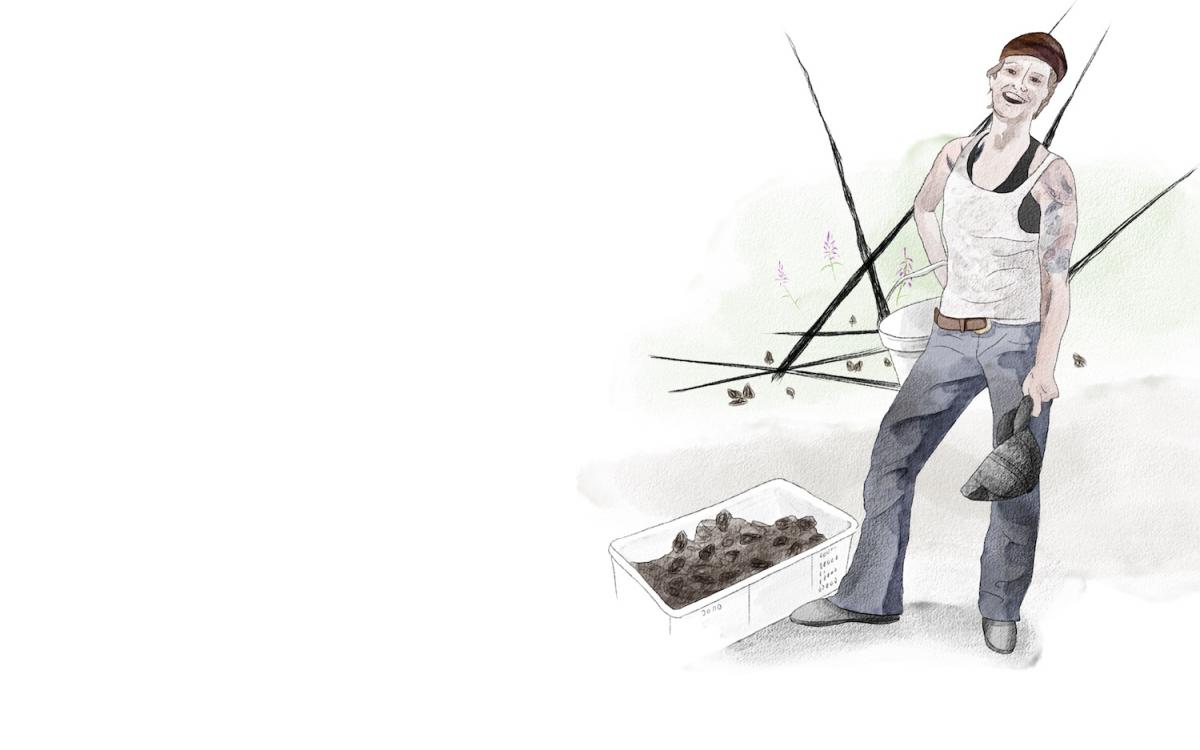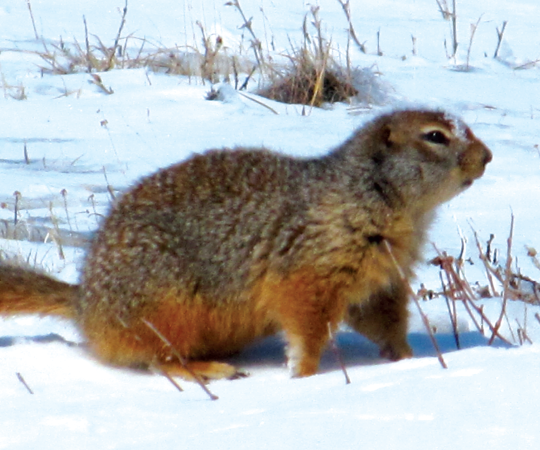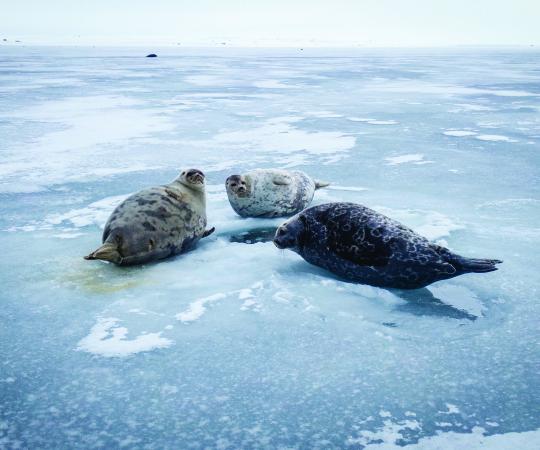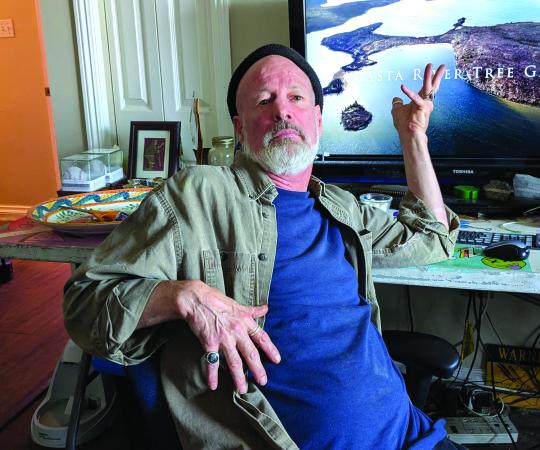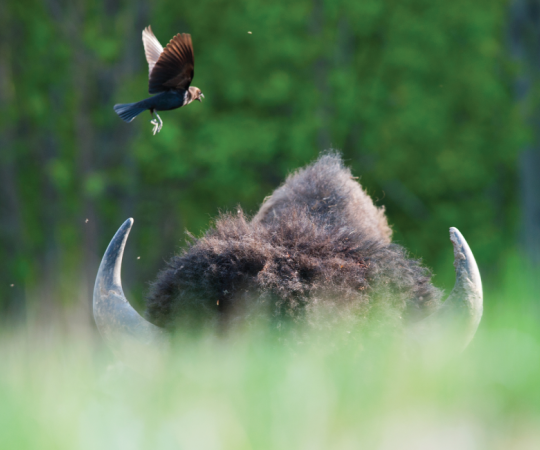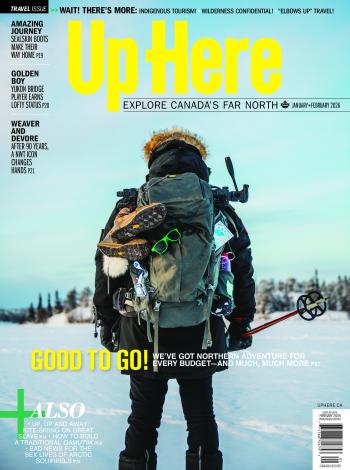It’s been an unusually quiet summer here in the Yukon. With the border largely closed to southern outsiders who don’t want to start their visit with a two-week quarantine, the Yukon has been largely just for Yukoners this season.
In the evenings, the streets—usually full of parked cars and RVs with licence plates from all over the world—are nearly empty, which makes everything seem sad and a little bit awkward, like the tourist season was a play no one bought tickets for.
Somewhere you can really see this absence most clearly is also one of the few places where it’s actually been kind of nice to have the territory to ourselves: the morel picking.
In previous years, I’ve worked as a professional morel picker, banging into deep burns in the remote backcountry with nothing more than a knife, a compass, a frame pack, and my trusty dog for weeks at a time. Morels only grow (in quantity) the year after a fresh burn, preferably a late burn and preferably in boreal forests, and I’ve hunted these tasty mushrooms as far north as Keno and as far south as the Eastern Kootenays. It’s typically a highly competitive enterprise. Buyers set up, often quite close together, and pickers—dozens, sometimes even hundreds, depending on the season and the size of the burn—come in droves, creating temporary villages in the burnt-out wilderness. There’s no running water or sanitation facilities, and nearby communities are the only sources for groceries and gasoline.
You can see why the Yukon government denied entry and commercial permits to outsiders this year, as those conditions are basically a COVID-19 spreading, public-health nightmare.
In the right year, under the right conditions, the Yukon has some of the best morel picking in the world. Our long summer days, relatively cool weather, high altitude, large expanses of wilderness, and relatively slow-growing plant life create ideal conditions for the mushrooms to flourish. Pickers still speak with reverent awe of
the great Carmacks burn of 2014 (the first I ever worked) where in some places the mushrooms were so thick you could roll around in them. Southern pickers—many of whom rely on the income they make over the season—were very excited about the prospect of picking here this year. So many people were disappointed—or out- right angry—that they could not.
I don’t pick commercially anymore—the extractive, colonial-minded, male-dominated culture of mushroom picking has become an ethical issue for me—but I still love to get out and pick for myself, so I went to the Elsa-area burn for a few weekends earlier this summer. On a normal year, this burn would have been swarming with outside pickers, all looking for the same fungi, all picking as hard and as fast as they could, scouting out new areas all the time, moving through more and more remote and harsh terrain. This year was different.
This year, I didn’t have to work that hard. This year, I got to leisurely set up camp and hike for a few hours before starting to pick mushrooms. There were a few other people at the camp site where I was set up—all Yukoners—but I never ran into anyone when I was out in the bush.
No big southern buyers setting up to make as much money as possible, only to funnel it back down south. No hoards of outsiders. This was one of the only years I’ve gone mushroom picking when I haven’t heard of someone needing to have search-and-rescue called in to come and find some (invariably outsider) picker who has gone missing (as famously happened in 2016, at the Barney Lake fire south of Watson Lake, and again outside of Yellowknife in 2017).
I got to take my time, teaching my friend about morels: how they grow, where to find them, and how to properly harvest them. I got to chill out in the sun, have a couple beers, go kayaking in a tiny lake, bag some monster pike and roast them (slathered in butter, stuffed with lemon, garlic and morels, of course) over campfire coals without watching my back for strangers. Families stopped to chat, small children in tow—something you almost never see when there are big camps of pickers due to the rather rough, drink-heavy culture they attract.
The forest was quiet. The fishing was excellent. The campgrounds were clean, and well-respected. The mushrooms were large and fragrant. It was some of the best picking I’ve ever experienced, exactly because it was Yukoners only.

